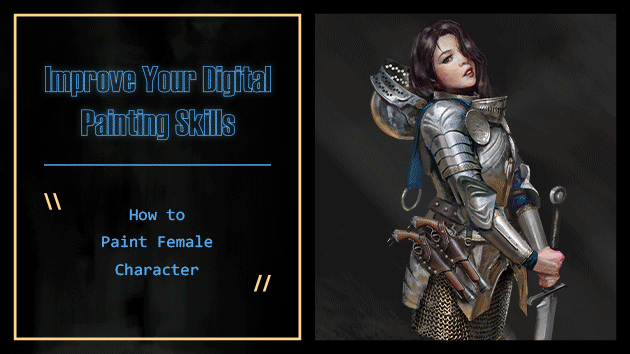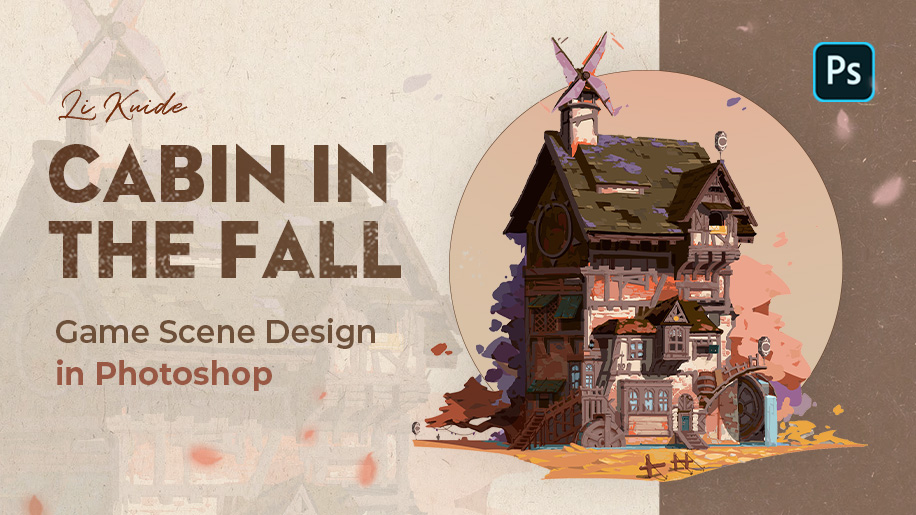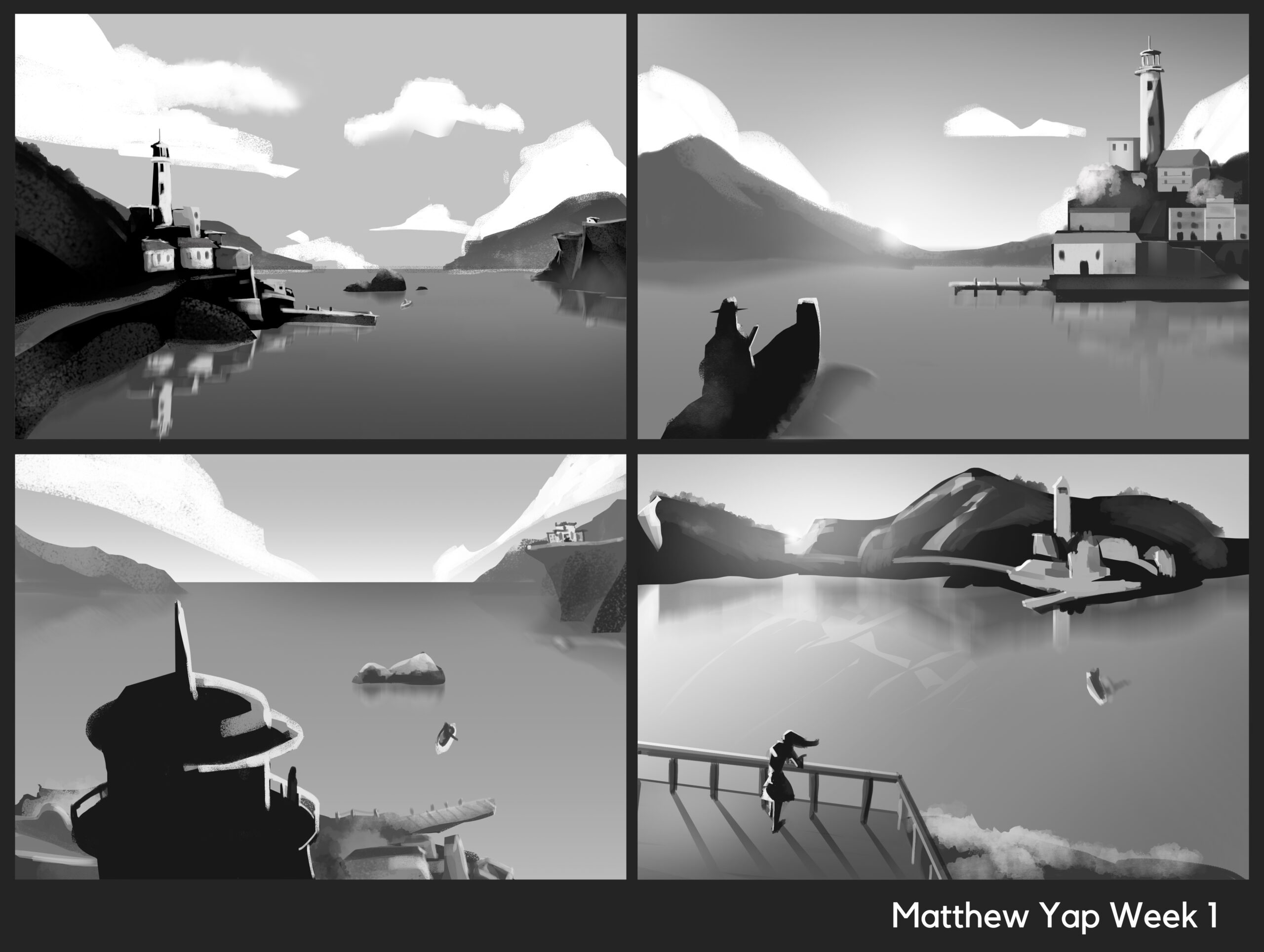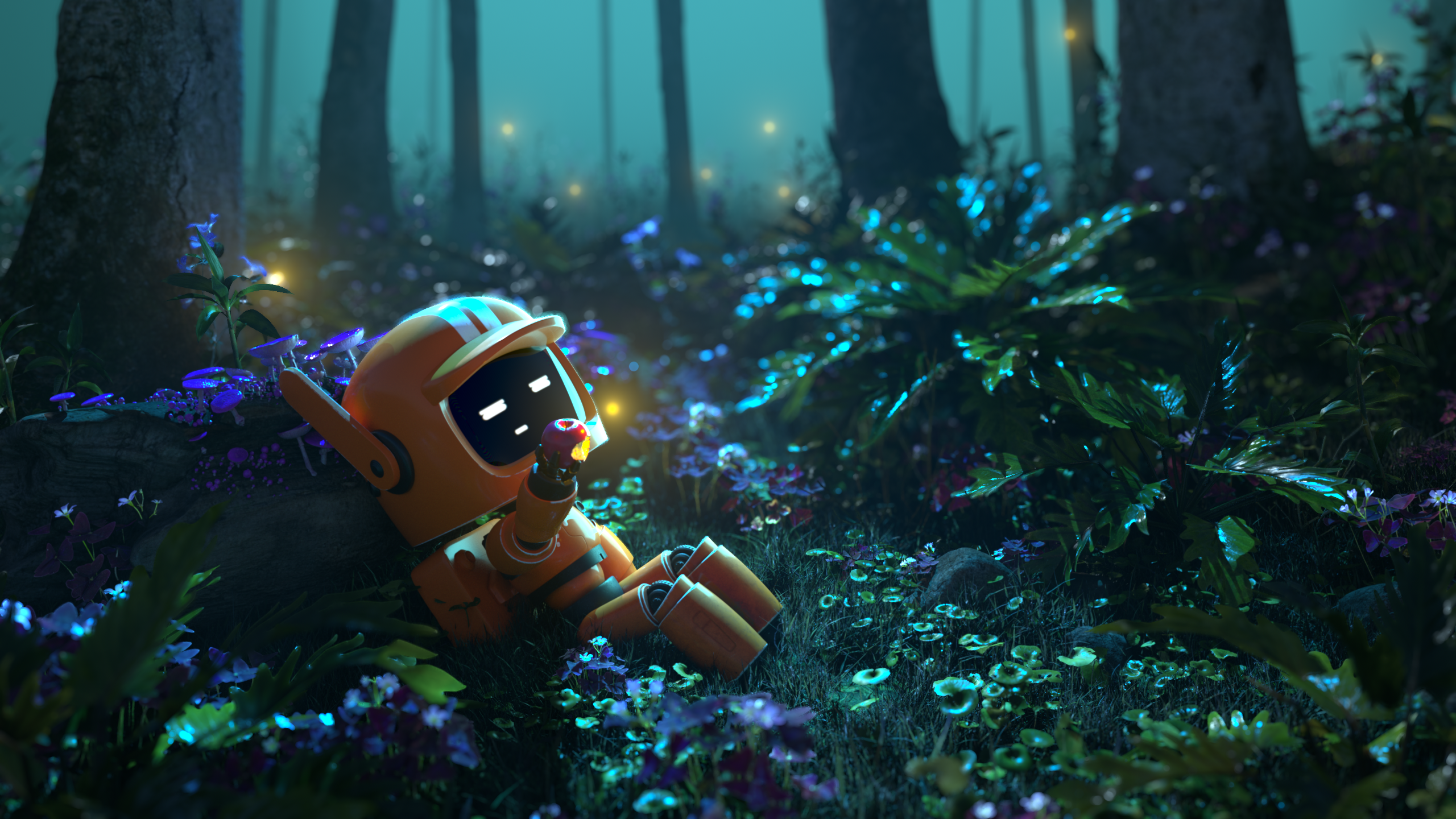Artist Training
Full disclosure: The banana was just there to get your attention. Somehow it just works, I think.:D
In some fashion, helping you become a successful artist is Wingfox’s focus. Even before the website that exists now, wingfox produced a lot of material, hope you and I can both benefit from it and get a clear idea of how we want to go about our artistic career.
The goal of “becoming a successful artist” is extremely vague. Art is a very broad discipline, and what is important to others as an artist may not necessarily be important to you.
Basically, think about one thing you want to do as an artist. I’m not saying limit yourself to trying something, but you need to focus on one goal for a reasonable amount of time to improve your skills to be successful.

One of your things that will basically belong to any big dream people have as an artist:

CODE:blog10
Even knowing which broad discipline you are interested in, you must choose a niche within these broad disciplines to help you define your vision more clearly.
There is no way to succeed without a clear goal.
So what is your goal as an artist?
Making a Living
Do you want to make a living as an artist? It helps answer this question. It doesn’t matter if the answer is yes or no. It’s important to keep this in mind so that you understand how to invest your time in your goals.
If you don’t want to make a living, you are free to do simple creations to enjoy the craft, which is absolutely fine and noble! You can live without some of the stress of earning a living as an artist and enjoying the satisfaction of working. Not wanting to make a living as an artist is a valid goal!
But if you do want to make a living, be ready for the challenge.
Your art must be worth more than other people’s money.
Don’t panic, though. It’s not as difficult as it sounds. This is where your niche is.
In some cases, you need your work to be worth more than the company’s money. This requires extremely high skills in problem solving for the company. If you want to work for any type of company, in almost any case you will need to be extremely skilled in the areas the company needs to achieve its goals.
However, there are also direct-to-consumer routes.
This article is talking about the concept of 1000 of true followers, or that you only need a small group of people who are willing to spend the right amount of money to get you through life. While you still need a high level of skill to go this route, you just need to be able to produce work that satisfies a small group of people who are particularly interested in your work, rather than trying to impress a family trying to appeal to a very broad audience.

In most cases, the life of a financially successful artist is not necessarily glamorous, but it is possible to make yourself a decent and comfortable life, pay your bills, give you freedom, and even allow you to take care of your family.
A Certain Level of Mastery
Knowing how good you want to be can help you design a route between your current skills and where you need to create pictures that interest you. This is the part you must have at least one concrete example of the art you are trying to create.
Essentially, if you don’t have some level of mastery of your craft, you can’t really be successful in art unless you just create for yourself and consciously opt out of the mastery because it’s none of your business. (This works, you just have to be true to yourself.)
Think of at least one specific person who reflects the level of mastery you have, and then examine how they did it. In some cases, these people have been straightforward about what they have to do to be successful, and even how long it will take.
Here are the reasons why artists are successful:
- Art is at the heart of their lives
These artists think about art when they wake up and fall asleep, and take time out of their day to make or market it. There is never a good enough excuse not to do it. If they have a full-time job, it’s secondary art, mostly a means to an end, because their real job is to be an artist. - They understand how the business of the art world works
Successful artists understand the entrepreneurial side of making a living as an artist. When they encounter something new or unusual in their business, they investigate and learn how to do it. If others have, there’s no reason they can’t. They learn the value of relationships and networking through social media—marketing is half the job, after all. - Successful artists have a strong work ethic
They manage themselves, their creativity and their resources. They balance the time it takes to make art and market it; they choose the pace of work and stick to it. Whether or not these artists like commercial assignments, they know it has to be done, and they do it without complaining or resentment. - Successful artists are resilient
They know success doesn’t happen overnight and requires hard work. These artists understand that things don’t always go the way they expect. When they make mistakes, they focus on the solution, not regret. They learn from experience and experimentation to improve on failures and successes. - They are surrounded by positive and supportive people
They limit the time and emotions they spend with negative people—especially those who disapprove of art as a career choice. Artists with supporters around create better art. Quite simply, successful artists don’t allow unsupportive people to get in the way of their successful plans.
Now all you have to do is repeat what they did.
The good thing about someone else’s experience is that you can spend your time doing your work without worrying about having to find the answers yourself. In this case, however, keywords are at work.
works of a certain size
Have you heard the story about two groups of people being judged on the quality of the pottery?
In short, one group of people was tasked with making the best jars possible, and the other group was tasked with making as many jars as possible.
The way this particular story is, people with the goal of making more jars accidentally make better jars because of their numbers.
I’m giving this anecdote in the hope that it will help you understand how you need to address how big your job needs to be to count as “successful”.
Questions about how good your art needs to be and how much your art needs to be for you to be successful.
Naturally, if you don’t practice and create art often and consistently, you’re less likely to achieve success as you define it.
How much art does it take to be successful? There isn’t a single number that’s hard to define.
First, you need to make enough art to get the proper level of mastery. Then, you need to leverage the right art to meet other elements of your success equation, such as:
1.Have enough art to sell and make the money you need
2.There is enough art to get the attention of the right people
3.Have enough art to convey what you want the world to hear.
4.Ultimately, you only really create a few really great works of art in your life, but you have to create a lot of art to get there, not a little bit of art.
The question of being an artist may lack clarity. Make your life easier, not harder. Find real examples of what you want at every level of the success equation and learn from them. Remember, you don’t have to worry about doing eight million different difficult things perfectly. Learn how to do one thing at a time and you’ll get where you need to go.
[Workshop Fundraising] Animation Background Concept Design in Blender
The pre-registration fee $99 value — you save $40!!
[Workshop Fundraising] Animation Background Concept Design in BlenderAn Important Role in the Game Art Industry: Technical Artist
It’s well known that the global gaming industry is on the rise, with the latest AAA titles revolutionizing the gamer experience. But developing such games takes several years. A good technical artist can ensure that your team can work together smoothly and without communication obstacles.
Technical artists are critical in the game development process as they bridge the gap between the artists and programmers. These professionals ensure a smooth art flow for characters and assets while resolving any technical issues that arise between the art program and the game engine.check it out~
Post a Comment
要发表评论,您必须先登录。













Pingback: Artist Training | art design | Scoop.it
2022-01-25